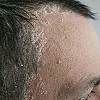What causes dry mouth — and what treats it—The Family HealthGuide
What causes dry mouth —
and what treats it
The three pints of saliva that the average healthy adult produces every day may be the most underrated body fluid. Saliva jump-starts digestion, dissolving and adding moisture to food so it's easier to swallow. It breaks down starch with a digestive enzyme called amylase. Saliva contains bicarbonate, which acts as a buffering agent that offsets the enamel-corroding acid produced by bacteria. Salivary antibodies and protein also fend off dental bacteria as well as other infectious agents. Saliva helps you speak clearly by keeping your mouth moist and allowing the tongue — which is essential to forming many sounds — to stay agile.
Compared with other medical problems, dry mouth, or xerostomia, may be little more than an annoyance: eating is a little less pleasant and speech a little more difficult. But for people who have little or no saliva, persistent xerostomia is a serious and often uncomfortable condition that can jeopardize oral health. It makes eating and swallowing difficult, causes bad breath, and may irritate mouth tissues, leaving them more vulnerable to infection. Dry mouth also increases the risk for tooth decay and gum disease.
The treatment of dry mouth depends on its cause. For a long time, many doctors thought xerostomia was a natural consequence of aging. Now most experts agree that the vast majority of xerostomia cases are side effects of the many medications older people take, rather than aging itself. The culprits include blood pressure medications, antidepressants, muscle relaxants, antihistamines, asthma drugs, and painkillers. Xerostomia can also be caused by radiation treatment for head and neck cancer; in killing the cancer, the radiation also knocks out the salivary glands. Other sources of the condition are chemotherapy drugs and various chronic diseases, including diabetes, Parkinson's disease, and an autoimmune condition called Sjogren's syndrome.
Something as simple as frequently sipping water can alleviate dry mouth. Sour foods stimulate the salivary glands, so lemon-flavored lozenges can be helpful. Various types of lozenges designed to produce saliva-like moisture are also available. Sjögren's and head and neck cancer patients have been treated somewhat successfully with pilocarpine mouthwashes and tablets. But pilocarpine is a strong medicine that needs to be used carefully. It is also used to treat glaucoma, but has fallen out of favor because it can limit night vision and cause chronic inflammation in the eye.
Artificial salivas (including Salivart Synthetic Saliva, Saliva Substitute, and Salix), which contain saliva-like lubricating agents, are sold in most drugstores and can be purchased without a prescription. Some brands come in handy little spray canisters like the mouth sprays used for bad breath. But many people have found that artificial salivas don't last very long and aren't that effective. If you are older, talk to your dentist about fluoride treatments or mouthwashes as a way of combating the greater risk of tooth decay that accompanies dry mouth. Many people learn to live with dry mouth; they figure it's a small price to pay for the benefits of medications and treatments. But if it gets to be serious, xerostomia can itself be a condition that deserves your doctor's and dentist's attention.
June 2003 Update
Disclaimer:
As a service to our readers, Harvard Health Publishing provides access to our library of archived content. Please note the date of last review or update on all articles.
No content on this site, regardless of date, should ever be used as a substitute for direct medical advice from your doctor or other qualified clinician.












